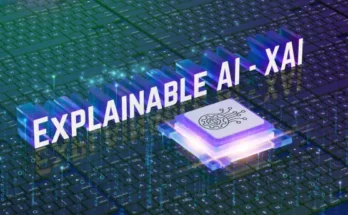The use of artificial intelligence tools like ChatGPT has become a hot topic in education. This has raised many questions, such as: is using AI considered cheating? Is AI truly a helper or a spoiler? Is solving assignments with AI academic misconduct? And so on. As the days pass by, more AI tools have been developed, and they serve different purposes. This article will discuss the role of ChatGPT in education — is ChatGPT an educational offense or a learning tool? It will also highlight the benefits and challenges of using ChatGPT in education.
What Is ChatGPT and Why Are Students Using It?
ChatGPT is an AI chatbot created by OpenAI that uses natural language processing to have conversations that feel human-like. It can also generate different types of text, such as articles, mathematical solutions, code, and more. Students are using ChatGPT for various academic purposes. These include essay writing, mathematical solutions, clarification of topics, and solving other problems related to writing, such as coding and more. This usage lies in its accessibility and the prompt assistance offered by ChatGPT, making it a go-to place for solutions.
Educational Institutions’ Stance on AI Tools
Many institutions have had their stances on the use of AI in solving educational issues, which has raised serious dust between institutions and their students. Below are a few stances by some institutions across the globe.
5 Smart Ways to Use AI to Study Better: Fun Learning with AIExeter University’s Stance on AI Usage:
GenAI tools can be used in different ways across modules. AI-integrated modules require students to use GenAI tools as part of their learning outcomes, with a record of tools and prompts used. AI-supported modules allow the use of GenAI tools to enhance tasks like summarising or improving language, with proper acknowledgement and documentation. AI-prohibited modules do not permit GenAI tools, except for basic spelling and grammar checkers, as they interfere with the learning outcomes.
University of York’s Stance on AI Usage:
Smarter Coding: Why AI Coding Assistants MatterAt the University of York, we recognise digital literacy as a key skill for both higher education and the workplace. We acknowledge that tools like translation and generative AI can be helpful when used correctly. However, users should be aware of their limitations, risks, and ethical concerns. While we’ll support you in using these tools, it’s important that they don’t lead to ‘false authorship’ in your work. False authorship is serious academic misconduct under university policy.
Open Universities Australia’s Stance on ChatGPT Usage:
ChatGPT can be helpful for research guidance, brainstorming ideas, clarifying study material, proofreading, and providing assistance in writing. However, it should not be used to write essays, blindly trust AI-generated information, or violate university policies on academic integrity.
Explainable AI Functions and Benefits: 2025 Update
Is Using ChatGPT an Academic Offense?
The decision on whether using ChatGPT is considered an academic offence depends on the specific rules and policies of the educational institution. Generally, it is believed that institutions have the same rule guiding AI usage. If a student uses ChatGPT to generate content and submits it as their own work without referencing the authors, it is generally classified as plagiarism, which is a serious academic offence.
Plagiarism involves presenting someone else’s ideas or work as your own, and using AI or copy and paste to generate text without acknowledging the author falls under this category.
In fact, a survey reported by Forbes found that more than half of college students (51%) believe that using AI tools like ChatGPT to complete assignments or take exams is a form of cheating. This shows the importance for students to be aware of and follow their institution’s guidelines on the appropriate use of AI tools. If students don’t understand the rules, they may unintentionally commit violations that could harm their academic reputation.
ChatGPT as a Learning Tool: Ethical Use Cases
When ChatGPT is used responsibly, it can add value to educational resources, making it ideal for use in academic activities. Below are ways to use ChatGPT as a learning tool for ethical applications.
- Idea Generation: Helping with idea generation for projects or essays.
- Clarification of Concepts: Offering explanations for difficult topics to support regular learning resources.
- Practice Exercises: Giving students extra problems or examples to work on, helping them understand better.
It is very important that students use ChatGPT to help with their learning, not to replace studying the course material or using it as a primary contributor to essay writing. Students should use ChatGPT as a supporting tool, not as a writing tool.
What the Future Holds: Banning or Integrating AI in Classrooms?
AI in education is still developing. Some schools are thinking about limiting AI tools to keep things fair, while others are finding ways to include them in their teaching. For example, Exeter University, the University of York, Open University Australia, and many more universities in developing countries are not banning AI but want students to use it in a way that follows their academic rules. This shows that there’s a push to bring AI into education in a smart and responsible way.
Can you let us know what you think about ChatGPT in education?
Don’t forget to read more updates here




